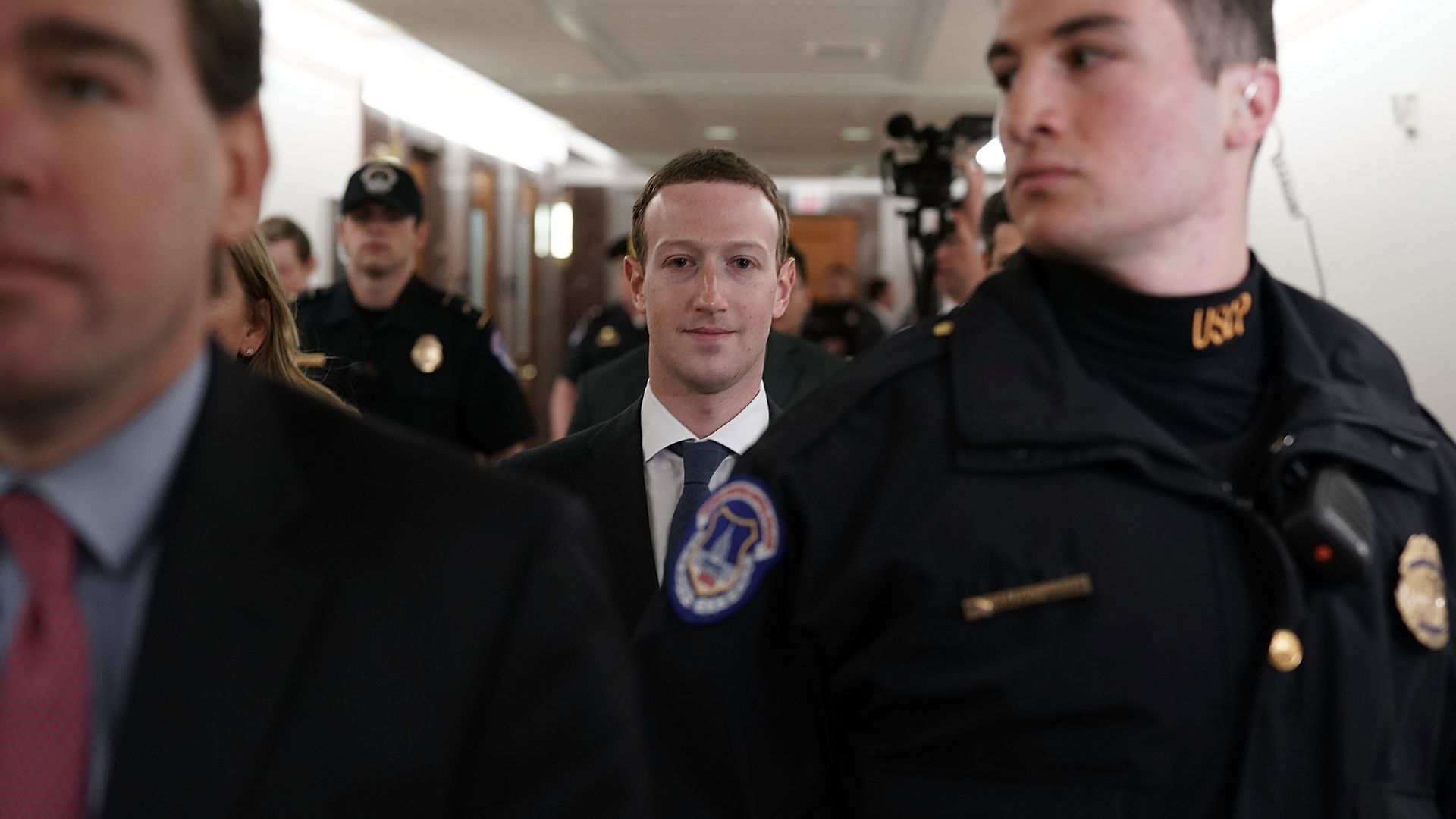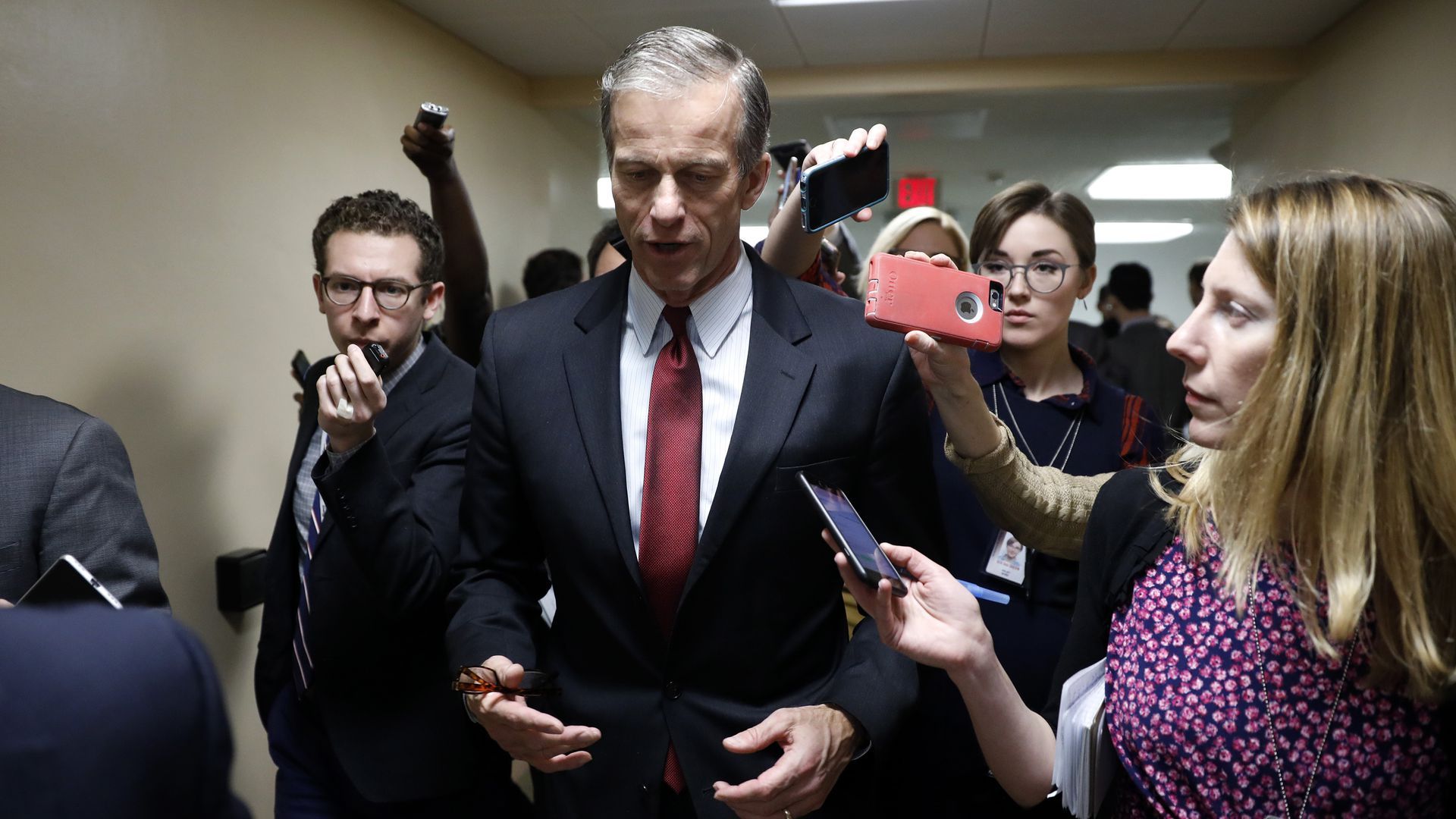| ||
| PRESENTED BY INTEL | ||
| Login | ||
| By Ina Fried ·Sep 27, 2018 | ||
One more plug for this: Tomorrow at 8 a.m. in D.C., join Axios' Mike Allen for conversations on the future of global competition in the age of 5G. He'll be interviewing two of the world's top antitrust officials: European Commissioner for Competition Margrethe Vestager and DOJ Assistant Attorney General Makan Delrahim. RSVP here.
| ||
| 1 big thing: Founders keep piling on Facebook | ||
 | ||
Facebook CEO Mark Zuckerberg. Photo: Alex Wong/Getty Images
| ||
First it was the Instagram co-founders leaving. Now WhatsApp co-founder Brian Acton is taking fresh aim at the social network he sold his company to in 2014 for $22 billion.
In an interview with Forbes, Acton provided his first detailed comments since encouraging people to delete Facebook in a March tweet. Acton left Facebook in 2017, and his WhatsApp co-founder, Jan Koum, left earlier this year.
Why it matters: The dramatic back-and-forth underscores the disconnect between Facebook’s leaders and the founders of WhatsApp and Instagram as those apps buoyed the company in the face of stagnant growth on its original platform.
The details: Here's some of what Acton had to say...
If Acton needed an Exhibit A, it arrived in a Gizmodo story that reported Facebook was using the phone numbers users provide for two-factor authentication to target ads at them.
What they're saying: Acton's comments, meanwhile, provoked a host of reactions, including a strong rebuke from Facebook's David Marcus, who stressed he was speaking for himself, not the company:
“Lastly — call me old fashioned. But I find attacking the people and company that made you a billionaire, and went to an unprecedented extent to shield and accommodate you for years, low-class. It’s actually a whole new standard of low-class.”
Andreessen Horowitz' Benedict Evans offered a similar criticism:
"This is just a thought, but maybe if you don’t want your product to have ads, don’t sell it to an ad company, or find a way to make it worth the ~$18bn they paid without taking ads, or both."
Our thought bubble: Yes, all the sniping between members of Silicon Valley's wealthy founder class is entertaining. But the disagreements underscore the discord growing within Facebook's key acquisitions right when the company needs them most.
| ||
| 2. Oculus debuts powerful portable VR headset | ||
 | ||
Photo: Oculus
| ||
While Facebook took a number of hits Wednesday, its Oculus unit made a big step forward. At its developer conference in San Jose, Oculus unveiled its Oculus Quest headset, a mobile VR headset that offers high-end features similar to the Rift but, like Oculus Go, doesn't need to be tethered to a PC.
The details:
Also: Oculus announced new titles coming for the Rift and new features for Oculus Go, including support for YouTube VR and the ability to mirror video to a nearby TV.
Why it matters: The VR industry has struggled to take off beyond hard-core gamers. Oculus Quest offers another opportunity to strike the right balance of price, convenience and features.
| ||
| 3. Tech companies want privacy rules on their terms | ||
 | ||
Sen. John Thune is spearheading a push for privacy legislation. Photo: Aaron P. Bernstein/Getty Images
| ||
While major tech and telecom companies told lawmakers Wednesday that they generally support federal privacy rules, they aren't ready to embrace some of the most significant policy changes backed by privacy advocates.
At a Senate Commerce Committee hearing, witnesses from companies including Google, Apple and AT&T expressed reservations about some particularly strong steps lawmakers could take to ensure user data privacy.
Why it matters: Companies are drawing lines in the sand for lawmakers who are under pressure to produce something, thanks to new privacy rules in Europe and a California privacy law that will go into effect in 2020.
What's next: “I think we might have a pretty good idea what a draft would look like [by the end of the year], but I suspect we probably wouldn’t get it acted on until next year," Commerce Chairman John Thune said.
Go deeper: Axios' David McCabe has more on the hearing here.
| ||
A MESSAGE FROM INTEL
| ||
| 5G will build a new critical infrastructure for America | ||
 | ||
| The 5G network will form a new critical infrastructure for a fully connected society. Cities will become smarter and machines will speak with machines, enabling remote medical monitoring, intelligent factories and hyper-efficient power grids. Learn about 5G use cases. | ||
| 4. Masa Son sees more Vision Funds ahead | ||
Softbank chief Masayoshi Son tells Bloomberg Businessweek he plans to raise a fresh $100 billion fund every two to three years and to spend around $50 billion a year.
By way of comparison, the Bloomberg article points out that the entire U.S. venture capital industry invested around $75 billion in 2106, per the National Venture Capital Association.
Other revelations:
Why it matters: Softbank's Vision Fund has already reshaped the tech industry, inspiring other investors to up their aspirations and fueling a wave of ever more cash-hungry startups.
| ||
| 5. Take Note | ||
On Tap
ICYMI
| ||
| 6. After you Login | ||
As a huge fan of women's hockey and love, this story warms my heart.
| ||
A MESSAGE FROM INTEL
| ||
| America’s 5G future needs mid-band “Goldilocks” Spectrum | ||
 | ||
| Mid-band wireless spectrum for 5G is vital to provide higher data rates over larger areas. Learn what policymakers can do to accelerate U.S. 5G leadership today. |
.
Wednesday, December 27, 2017
5g plus
Subscribe to:
Post Comments (Atom)


No comments:
Post a Comment